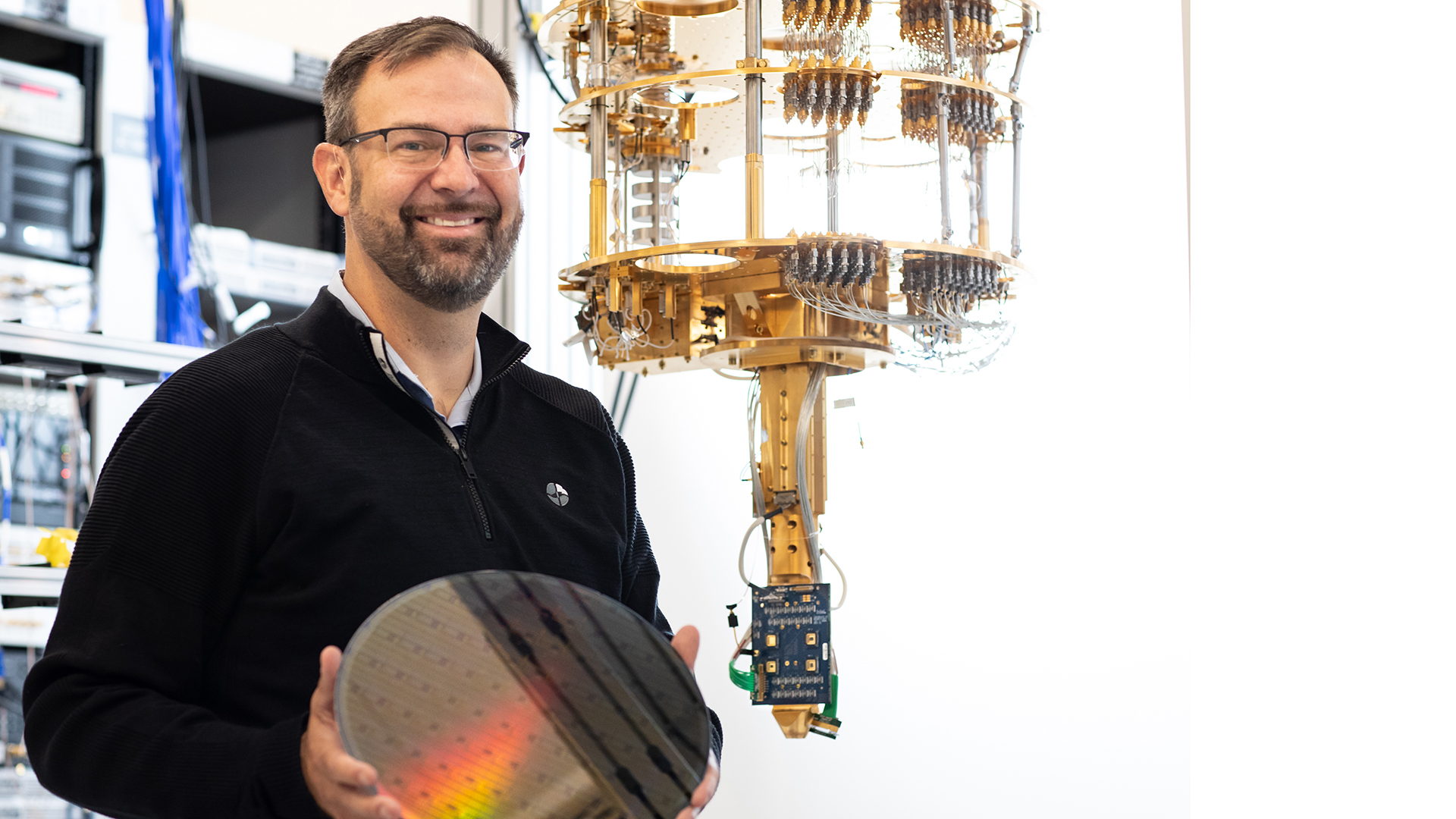Introduction:
In a groundbreaking development for the quantum computing industry, Intel’s researchers published a paper in Nature showcasing a new method for testing spin qubits on 300-millimeter wafers using CMOS techniques (like the ones used for regular chips). This high-throughput testing method allows them to collect a lot of data on qubit uniformity, a crucial step towards building Silicon-Based Quantum Processors.

This breakthrough demonstrates Intel’s success in achieving remarkable uniformity, fidelity, and measurement statistics of spin qubits, laying a strong foundation for the mass production and scalability of silicon-based quantum processors.
Follow us on LinkedIn for everything around Semiconductors & AI
Spin Qubits and Quantum Computing:
Quantum computing harnesses the principles of quantum mechanics to perform computations that are beyond the capabilities of classical computers. Spin qubits are one of the leading approaches for realizing quantum bits or qubits, the fundamental units of quantum information processing.
They encode information in the spin states of individual electrons, offering promising scalability and compatibility with existing semiconductor manufacturing techniques.
Overview of the Research:
Led by quantum hardware researchers at Intel, the study showcases the utilization of a 300-millimeter cryogenic probing process to gather high-volume data on the performance of spin qubit devices across entire wafers.

Intel developed a new 300-millimeter cryogenic probing process. This means they can test entire wafers of spin qubits at extremely low temperatures (close to absolute zero) – a requirement for quantum computers to function.
Leveraging complementary metal oxide semiconductor (CMOS) manufacturing techniques is a significant advantage for Intel’s approach. CMOS processes are widely used in the semiconductor industry for manufacturing integrated circuits, offering scalability, reliability, and cost-effectiveness.
This advancement not only enhances the uniformity of qubit devices but also enables researchers to obtain significantly more data for analysis, crucial for scaling up quantum computers.
Read More: Italy Invests $10.7 Billion to Become Europe’s Microelectronics Leader – techovedas
Key Findings:
The research paper published in Nature highlights two key findings:
Uniformity: The new testing method allows them to assess the consistency of spin qubits across a wafer. This is crucial for building reliable quantum processors.
Gate Fidelity: Gate fidelity refers to how accurately a qubit performs a specific operation. Intel’s spin qubits achieved a 99.9% gate fidelity, which is considered very good for this type of qubit.
The research Silicon-Based Quantum Processors showcased remarkable gate fidelity, hitting 99.9% with single-electron devices as spin qubits.
This fidelity is unprecedented in all-CMOS-industry-made qubits, showcasing Intel’s fabrication prowess for superior qubit performance.
Read More: Intel: A Story of Innovation – techovedas
Intel’s Expertise in Manufacturing:
Fabricating spin qubits requires precise control at the nanoscale due to their delicate quantum nature. Intel’s use of extreme ultraviolet (EUV) lithography allows for the creation of spin qubits as small as 100 nanometers, pushing semiconductor manufacturing to its limits.
Overcoming fabrication challenges is crucial for achieving fault-tolerant quantum computers with millions of qubits, and Intel’s research marks a significant stride in this endeavor.
Conclusion:
Intel has achieved a significant breakthrough by probing single electrons across 300-mm spin qubit wafers. This marks a crucial leap in the pursuit of scalable quantum computing. Leveraging CMOS manufacturing techniques and semiconductor fabrication expertise, Intel showcases leadership in quantum computing innovation.
Read the Paper here




